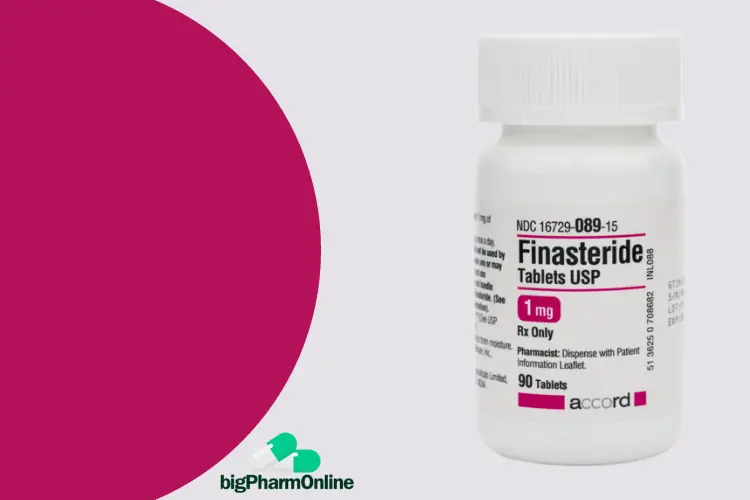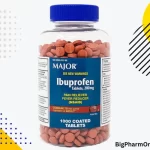Does Finasteride Cause Watery Sperm?

Finasteride has proven to be an effective treatment for hair loss. But it is associated with numerous side effects that negatively impact sexual health and sometimes fertility in men.
In this article, the pharmacist will answer the question “does finasteride cause watery sperm?” We will also take a look at the available research works geared towards establishing a link between Finasteride use and watery sperm, low sperm count, and infertility in men.
Key points
- Finasteride can cause watery semen due to its ability to lower sperm count. Low sperm count is considered a common cause of watery semen in men.
- Studies have shown that men who discontinued finasteride use saw their sperm counts increase significantly, often to normal levels.
What to Know About Watery Semen
A normal semen is usually thick and whitish. It contains sperm and secretions from the prostate gland and other male reproductive glands. When semen is described as watery, it means it is existing as a thin and clear liquid rather than a thick and cloudy one.
Watery semen can occur as a result of low sperm count, frequent ejaculation, or zinc deficiency. Low sperm count or oligospermia is one of the most common causes of watery semen.
It is a condition whereby the quantity of sperm cells present in your semen is below the level considered normal for a male. This value is often expressed as less than 15 million sperm in 1 milliliter of semen (< 15M/mL).
Low sperm count can be a result of an infection such as a sexually transmitted disease, the swelling of a vein in the testes, hormonal imbalance, a tumor, or certain medications.
Watery sperm can be temporary and may not have an impact on fertility. However, persisting cases should be looked at by a doctor for appropriate treatment.
Finasteride is available as an oral tablet for the treatment of hair loss. There are also topical formulations that have not been approved by the FDA yet.
Does finasteride cause watery sperm?

Finasteride can cause watery semen or sperm due to its ability to cause low sperm count as a side effect. Low sperm count is considered one of the most common causes of watery semen in males.
A small study was conducted to evaluate the level of improvement in semen parameters among 14 male subjects who had discontinued the use of finasteride.
The men picked for the study had been on finasteride for an average duration of 57.4 months and at an average dose of 1.04 mg per day prior to discontinuation.
It was observed that men who had mild to moderate oligospermia (5 – 15 Million sperms per 1 mL of semen) saw an average 11.6-fold increase in their sperm counts after discontinuing the use of finasteride for hair loss.
Subjects who had severe oligospermia (< 5 million sperms per 1 mL of semen) saw their sperm counts significantly increase above 15 million per mL. None of the subjects in the study had a decrease in sperm count.
This shows that discontinuing the use of finasteride may restore low sperm counts to the normal level.
The outcome of Other Researches
Varying outcomes exist among the various studies carried out to establish the effect of finasteride on male sexual health and fertility.
An old (1999) study first asserted that chronic daily treatment with finasteride does not affect sperm or semen production in young men. The study examined the effects and reversibility of the effects of using 1mg daily doses of finasteride to treat male pattern baldness in 181 men aged 19-41 years.
The men were split into two groups receiving either 1mg finasteride or a placebo (inactive substance) daily for 48 weeks. Followed by a 60-week off-drug period.
A subset of 79 men provided sequential semen samples to analyze multiple parameters including sperm count, motility, ejaculate volume as well as prostate size and PSA levels.
The results demonstrated that taking 1mg finasteride daily did not significantly impact measurements of sperm or semen production over the 48-week treatment period.
Minor decreases were observed in ejaculate volume, prostate size, and PSA levels. However, these changes were reversed after stopping treatment.
More recent studies have long disputed these findings about finasteride. One study was conducted to evaluate the presence of changes in sperm parameters, hormone profile, and sexual function among 55 males with androgenetic alopecia (male pattern baldness) who were taking 1 mg/day of finasteride.
It was observed that these men had a significant decrease in their sperm count and also the presence of abnormal forms of sperm in their semen, 6 months into the treatment.
Testosterone level was noted to be higher after 6 months of therapy compared to the level before treatment. There was no report of sexual dysfunctions among these male subjects.
Another review of existing research recorded a series of outcomes that pointed to the fact that finasteride can alter sperm counts and form, as well as cause other unwanted sexual side effects.
However, the positive in all these is that a great percentage of men often witness their sperm counts return to normal levels after discontinuing treatment with finasteride.
Other side effects of Finasteride
The major side effects of finasteride are usually sexual and they include:
- Low libido or sexual drive
- Reduced ejaculate volume
- Low sperm count
- Inability to gain or maintain an erection.
These sexual side effects are often temporary and they resolve after the drug has been discontinued.
Final Thoughts
Finasteride can cause sperm to become watery by inducing low sperm count. It can also cause other sexual side effects which often disappear after the drug has been stopped. If you notice that your semen is watery and you want to discontinue your hair loss treatment with finasteride. Talk to your doctor about this possibility and also have some tests done to rule out other causes of watery semen.
References
- Overstreet JW, Fuh VL, Gould J, Howards SS, Lieber MM, Hellstrom W, Shapiro S, Carroll P, Corfman RS, Petrou S, Lewis R, Toth P, Shown T, Roy J, Jarow JP, Bonilla J, Jacobsen CA, Wang DZ, Kaufman KD. Chronic treatment with finasteride daily does not affect spermatogenesis or semen production in young men. J Urol. 1999 Oct;162(4):1295-300. PMID: 10492183.
- Samplaski, Mary K. et al. Finasteride use in the male infertility population: effects on semen and hormone parameters. Fertility and Sterility, Volume 100, Issue 6, 1542 – 1546.
- Pallotti F, Senofonte G, Pelloni M, Cargnelutti F, Carlini T, Radicioni AF, Rossi A, Lenzi A, Paoli D, Lombardo F. Androgenetic alopecia: effects of oral finasteride on hormone profile, reproduction and sexual function. Endocrine. 2020 Jun;68(3):688-694. doi: 10.1007/s12020-020-02219-2. Epub 2020 Feb 12. PMID: 32052367.
- Gude D. Finasteride and male fertility. J Hum Reprod Sci. 2011 May;4(2):101-2. doi: 10.4103/0974-1208.86093. PMID: 22058646; PMCID: PMC3205531.
- Mysore V. Finasteride and sexual side effects. Indian Dermatol Online J. 2012 Jan;3(1):62-5. doi: 10.4103/2229-5178.93496. PMID: 23130269; PMCID: PMC3481923.
Was this helpful?
About the Pharmacist
Pharm. John Mark (BPharm) is a licensed pharmacist with over 6 years of experience spanning clinical, community, and hospital pharmacy settings.
His wealth of experience and expertise makes him your knowledgeable and go-to source for all pharmacy and medication-related questions.











